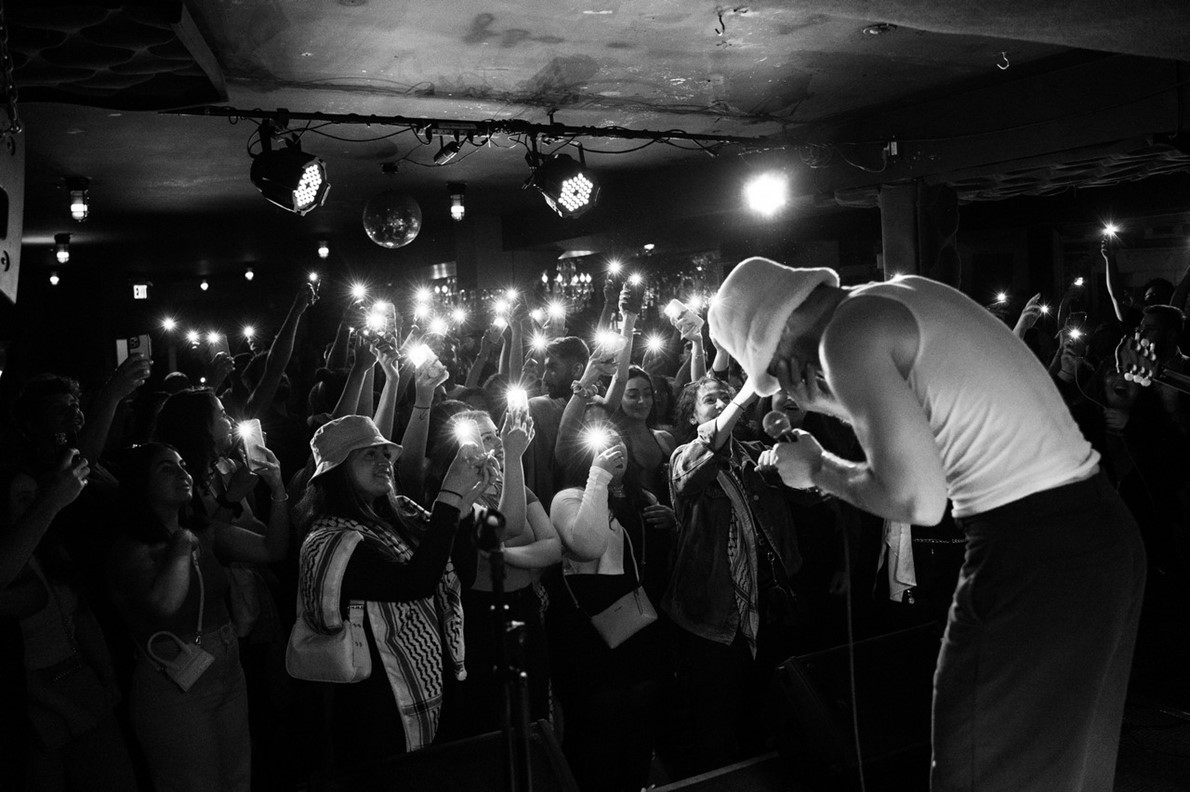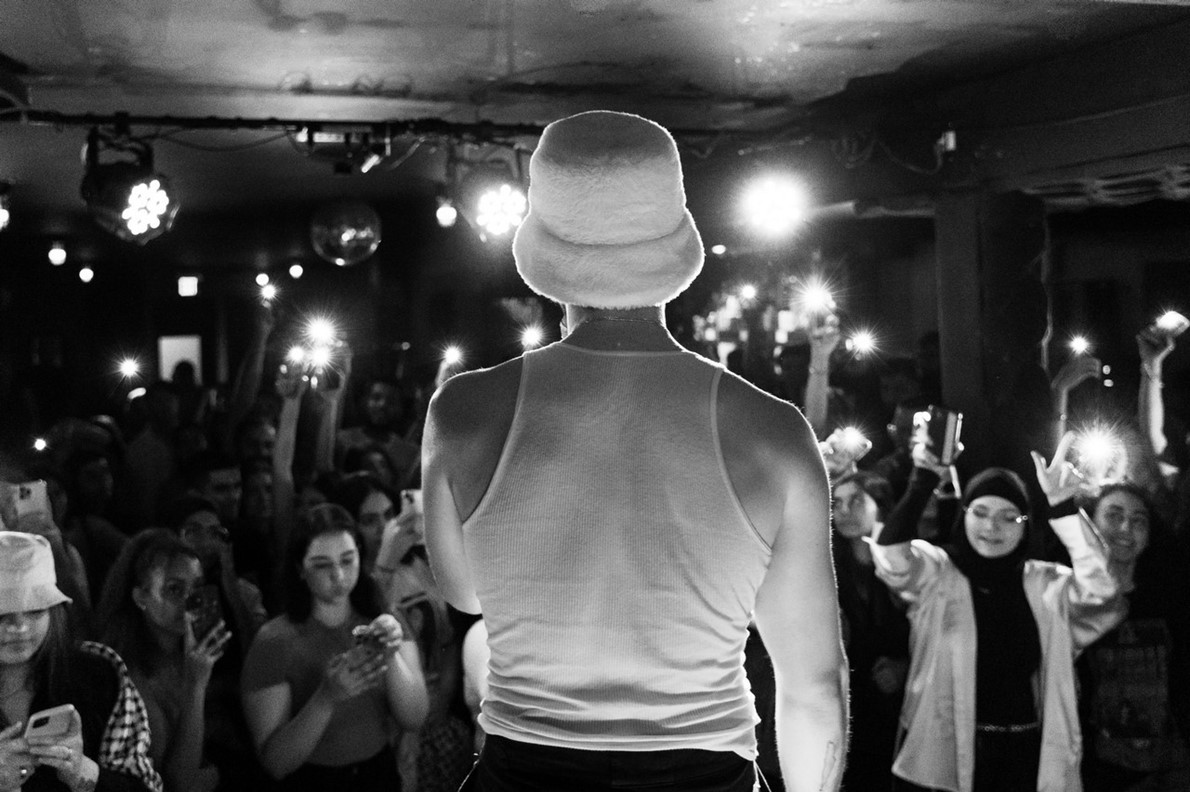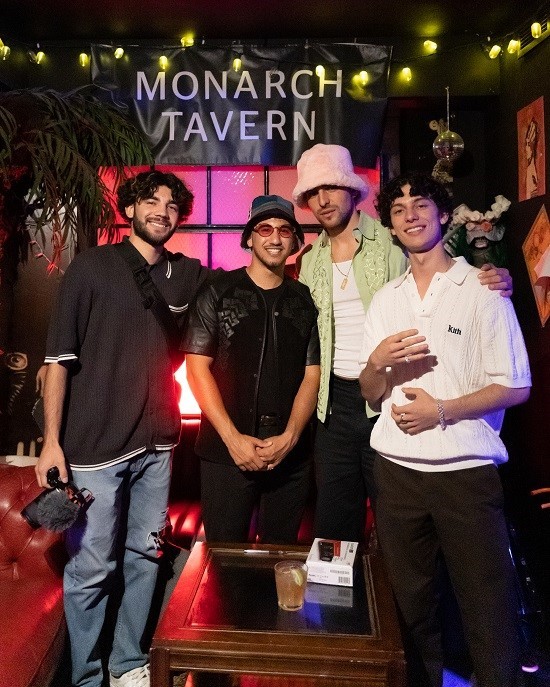Music creator Marwan Abdelhamid, more commonly known as Saint Levant, identifies himself primarily as a “Palestinian-French-Algerian-Serbian artist”. But when pressed, he reveals a different side to his view of himself.
اضافة اعلان
“Saint Levant is
the creative outlet of Marwan. Obviously, Saint Levant has a lot of Marwan, but
he’s also the culmination of my childhood dreams,” explained the artist.
“Childhood dreams are not rooted in reality, they’re rooted in fantasy. Saint
Levant does what he thinks is sick, tries to bring ideas to life and tries to
get better at what he does.”

The 21-year-old
began his musical career on TikTok and Instagram in 2018, and it is quickly
developing — he currently has 115,000 monthly listeners on Spotify alone.
Born in Jerusalem,
Abdelhamid grew up in
Gaza and then Amman before moving to his current base:
Los Angeles, California.
This constant
displacement and the resulting feeling of being out of place strongly
influences Levant’s music, with the artist describing his resulting sound as
“eclectic”.
“I grew up with a
lot of different things going on. I would speak French at home, but I would go
to Nadi El Wehdat every day to play football,” Levant recalls. “I would go to
an American School, (surrounded by) American pop culture, and also have my
North African side, so there’s a lot of things in the subconscious that would
emerge to create something new.”
Saint Levant also
cites his father, Rashid Abdelhamid — a renowned producer, director, and art
curator — as another major influence who has shaped his sound.
“We don’t listen to
the same music now, but I grew up with his music taste until I was able to
develop my own. He listens to Wyclef Jean, Lenny Kravitz, Timbaland, Sting, and
The Police.
Lenny kravitz and Wyclef Jean are crazy influences of mine,” the
young artist said. “I grew up listening to a lot of French music as well. I
just wanted to be like Michael Jackson and Mika, two of my biggest
inspirations.”
As Abdelhamid grew
up, he said, he also started listening to Arab music, including artists
Shabjdeed and Marwan Moussa, showing that he lacked a “traditional” Arab
musical influence in his childhood. When he incorporated Arab beats into his
playlists, he said that it was the originality of these artists that encouraged
him to develop his own sound.

These influences
are evident in Levant’s new creations. Since the beginning of his three-year career,
Levant has released 16 singles. Ranging from his Jerusalem Freestyle to 7ajir,
1001 Nights, and Mandela, his music focuses largely on the political —
especially given that Edward Said is “the guy that I really see myself in”.
It’s not just based on ‘this guy makes cool
music’, I think it’s a real community.
Saint Levant’s
music also heavily details his experiences with mental health issues, and his
lyrics attempt to normalize mental health conversations.
“What happens when
you start taking care of your mental health? You can dissociate from and
analyze yourself, and identify patterns of behavior you don’t like,” he noted.
“Before therapy, I just assumed that I’m a stubborn, anxious person. But after
therapy, I realized that maybe the fact that I literally grew up in a war zone
has something to do with it.”
“When you start talking about it, you’re
able to work on yourself in a way where you’re aware of these feelings and make
an actual plan to deal with them.”
It is these discussions and Saint
Levant’s relatability that have attracted what he calls “his community” — and
community building is vital to the artist.
“When I write, ‘I miss not knowing I was
living in a war zone, I miss when all my friends were on the same time zone,’
it’s a really specific thing that people relate to, so people will message me
telling me that,” he said. “That, for me, is community building. I never really
had a community growing up and I always had to integrate myself into different
communities, now the music is good because we’re building our own.”

Reflecting on his
show in Toronto, Canada in June, the artist recalled that he felt like the
audience were “his friends”.
“It’s not the biggest community, but
it’s real. It’s not just based on ‘this guy makes cool music’, I think it’s a
real community. These guys who really support me, they’re the same as me; there’s
something that clicked between us,” he said.
Looking to the
future, Abdelhamid wants to expand not only his music, but also the business
side of his craft. This is embodied in 2048, his “world-building artistic
project”, which provides living stipends for creative Palestinians. He chose
2048 as “a significant date” because it is 100 years post-Nakba.
“I want to be a
project artist, and when I say project, I don’t mean just audio. 2048 is the
world that I want to live in. It’s a re-imagination of what is, and isn’t
acceptable. I don’t know what it looks like, but I can feel it, I know what the
colors are, it’s everything I do,” he explained.
“I had to work for
this and I’m still working for this, because I wanna do it because it fulfils
me and it brings me a lot of joy. A lot of it is luck, but also believing in
myself more than anyone else,” he said.
“No one’s gonna
believe in you if you don’t believe in yourself.”
Read more Music
Jordan News



